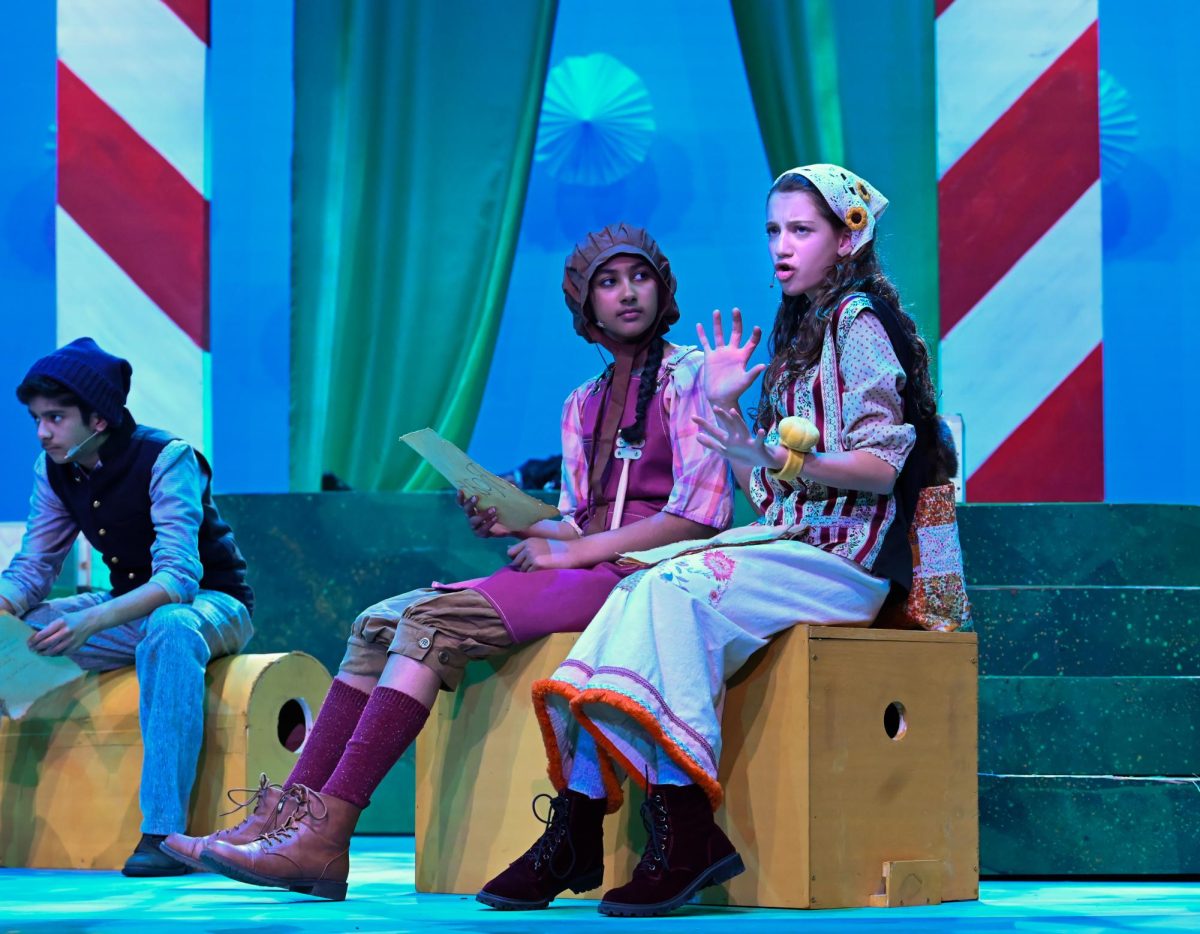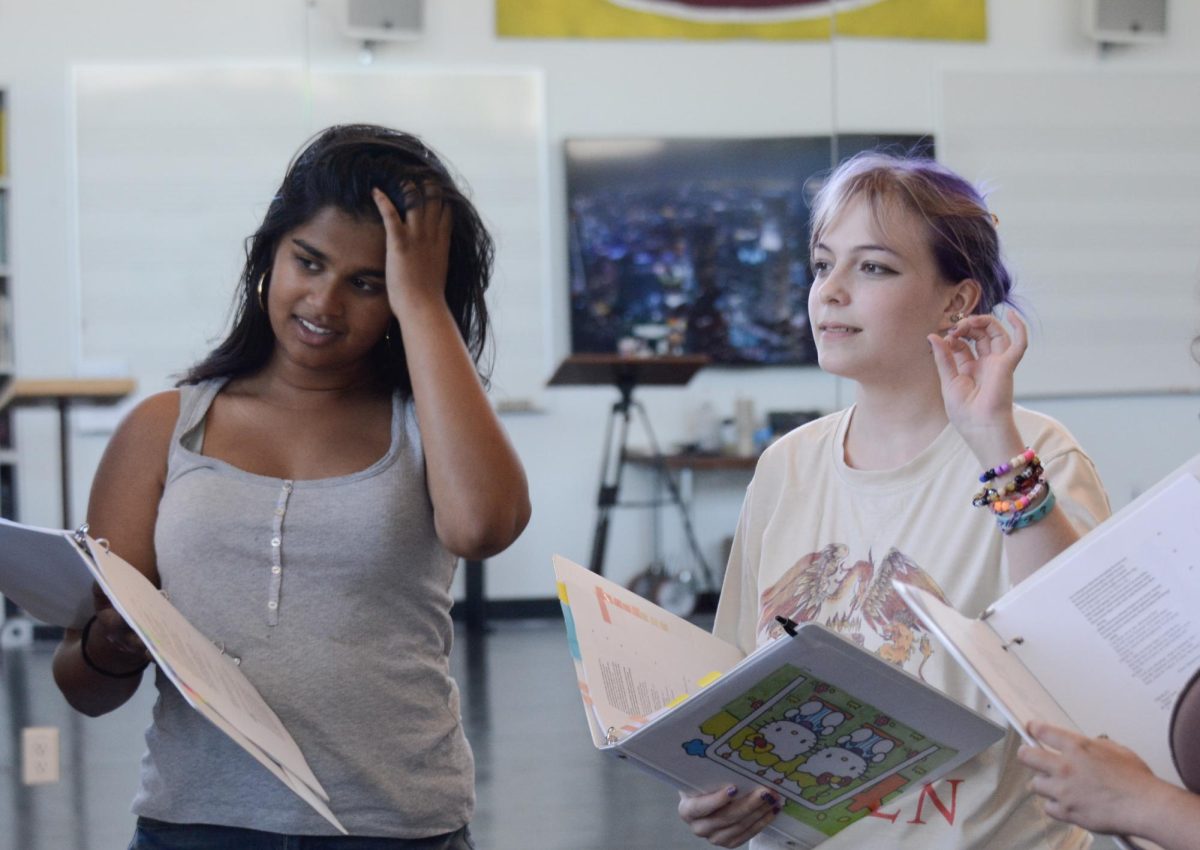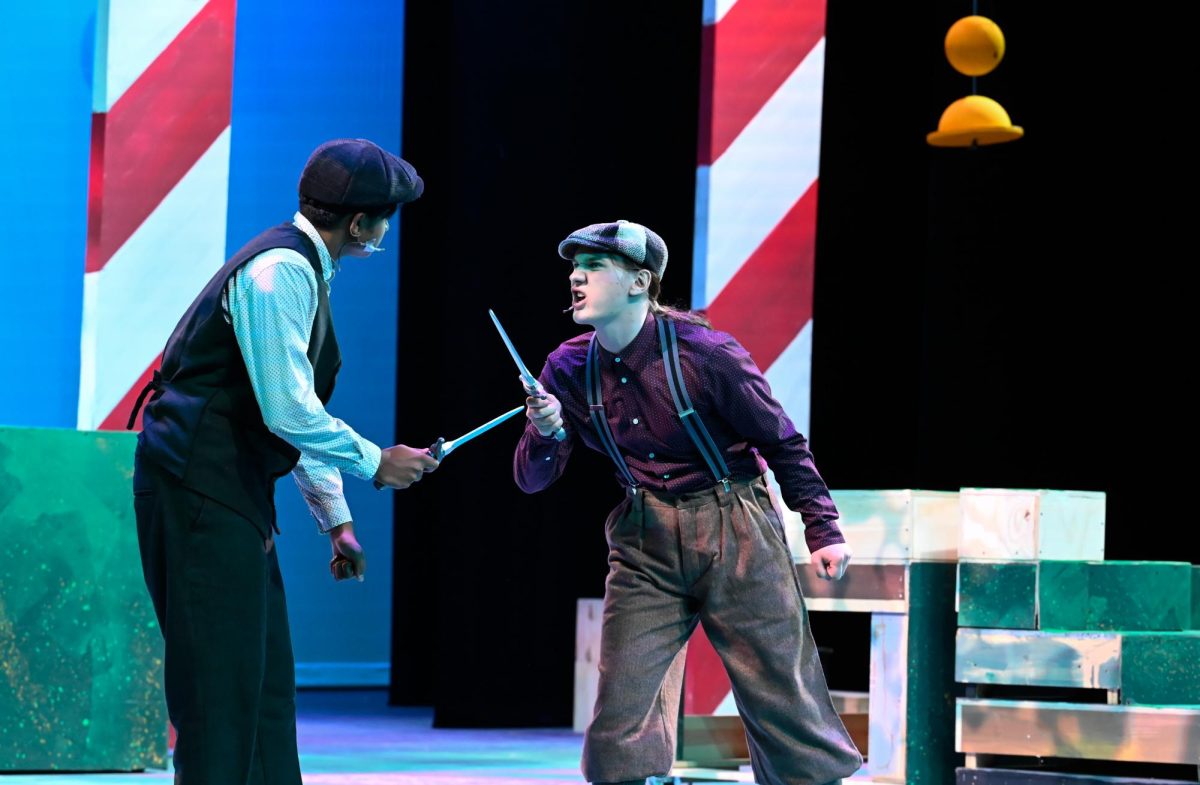Midsummer magic


Crafty fairies, starstruck lovers and comedic laborers come together on stage under whimsical backdrops, bringing a timeless tale to life. The cast slips so naturally into their roles that it feels as if the characters are intrinsically part of them—a harmony achieved through meticulous preparation and a casting process that matches every actor to their ideal part.
Actors and technical crew prepared for this year’s Fall Play, Shakespeare’s “A Midsummer Night’s Dream,” from August to October. Theater teacher Brandi Griffith directed the show, aiming to inspire an appreciation of Shakespeare in her students.
“Shakespeare is not boring,” Griffith said. “The actors and the director can make it boring if they don’t bring life to the words, but Shakespeare can be very interesting. ‘A Midsummer Night’s Dream’ is especially one of the most entertaining comedies.”
“A Midsummer Night’s Dream” takes place in an enchanted forest where love gets turned upside down. The play follows four young Athenians—Hermia, Lysander, Demetrius, and Helena—who find themselves entangled in a web of love and mistaken identities. When the mischievous fairy Puck interferes, his magical love potion creates unintended consequences. Adding to the chaos, a group of amateur actors stumbles through their own play rehearsals, unwittingly crossing paths with the fairy world.

Students began preparing for the play over the summer when they received information about audition requirements, which included performing a comedic Shakespeare monologue. Thirty students auditioned for a role in the play, with 22 progressing to callbacks.
Callbacks gave actors a chance to experiment with character dialogue to the best of their ability. Griffith organized engaging activities for the callback process, and she moved students around in different roles to allow them to gain exposure.
Senior Fern Biswas, who has participated in the Fall Play for the past four years, found this year’s audition process less stressful than previous years.
“Ms. Griffith was very accommodating of our individual times and processes, and all we needed to present was a brief monologue,” Fern said. “Callbacks are always my favorite part of the process since we get to work with the other auditionees and potential future castmates, plus we have the opportunity to experiment with the choices we make for a plethora of characters.”
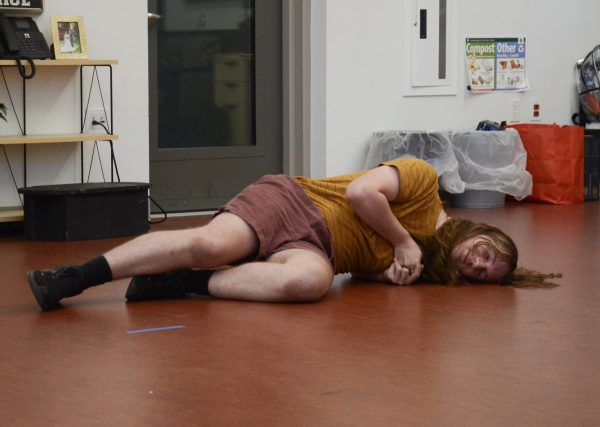
After callbacks, 21 actors started to familiarize themselves with their roles and read through the script. Because Shakespeare’s writing style leans on the denser side, Griffith asked cast members to translate their lines into modern English.
Cast members also received a list of 35 different exercises prompting them to consider the motivations and goals of their characters. Sophomore Nathaniel Idicula found the activities outlined on the sheet helpful for playing his character, Nick Bottom.
“[The sheet] was talking about how you have to understand the character’s motivations and their mindset,” Nathaniel said. “In particular, my character is a narcissistic guy, so he tries to make everything about himself and over dramatizes everything. Those are the motivations that I got from the character, and I tried to channel them in the show.”
Rehearsals encouraged bonding amongst the cast as they went through their scenes together. They bounced lines off each other, with laughter often filling the room due to the comedic nature of the show.
“With a show like this, there are so many funny rehearsals,” Griffith said. “There was one where it felt like there wasn’t enough oxygen in the room because we were laughing so hard. We were starting to sweat. It was a wild day, but it was my favorite rehearsal. That was a day that really cemented the bond with the cast.”
The cast then proceeded with deeper blocking and stage rehearsals. This process allows them to dive deeper into their characters. Actors went from “on book,” where they have complete access to their script, to “off book,” where they can call for help with a line and finally to “dead book,” where they have no access to any resources.
“It can be hard when actors are really relying on their script,” Griffth said. “It doesn’t free their body or their mind. So when actors are finally memorized, it gives them more of the chance to really act and see what their character can do beyond just sticking to the script. One of my favorite parts is once they’re memorized because then the play becomes even more playful.”

Cast members took to the Patil Theater stage for Tech Day on Oct. 20. While the rehearsal was originally scheduled on Oct. 19, a PG&E power outage forced faculty to reschedule it to the next day. Both actors and crew remained on campus from 8 a.m. to 6 p.m., allowing the technical crew to finalize the lighting and effects for the show and ensure that dress rehearsals the following week ran smoothly.
“Tech Day is super important because if we didn’t do it, the crew would be completely scrambling,” sophomore Léa Kandl-Zhang said. “The day is basically dedicated to helping us figure out what to do and fix the problems in the show. This is the first time we’re actually flying things and moving everything. Without that, there would be a lot of problems and no fixing.”
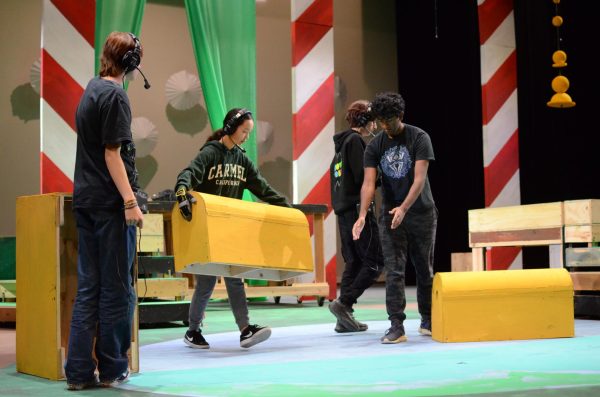
Senior Leo Sobczyn noted that from their experience as both an actor and a crew member, Tech Day consists of many revisions of the show.
“This is my first time on the tech side of things,” Leo said. “I’ve been on the performance side, so this is a different way of doing it. When you’re performing, it’s a lot about staying in costume and makeup and just standing up on the stage in spots they need you in. For tech, the difference is that it’s a lot of sitting around, waiting to do the things that we’re supposed to do.”
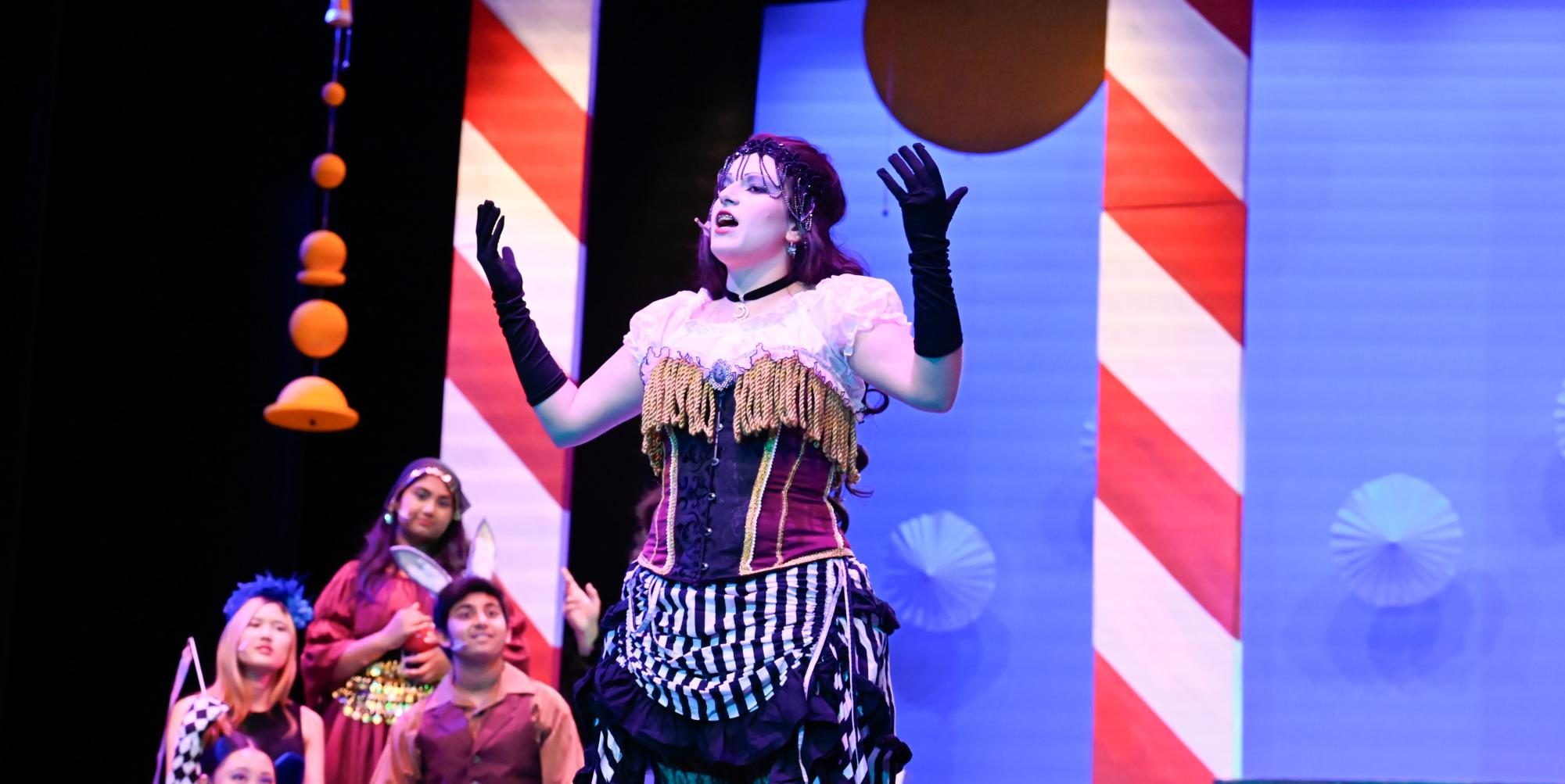
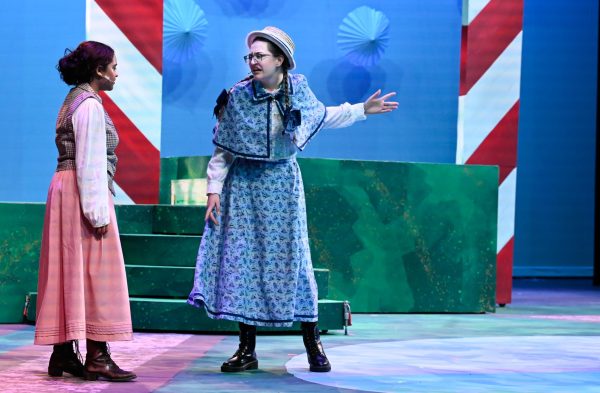
Actors gave their final performances on Oct. 25 and 26 in the Patil Theater. For the actors and tech crew behind the production, this was the culmination of their hard work over several months.
“Shakespeare can be really difficult, in terms of the multilayer process,” Griffith said. “Seeing what they were able to do at the end of it, I’m just really proud that they were so dedicated to the work. That’s all you want as a director — to have a dedicated cast that really loves what they do. They were so willing to grow, and they took my direction and guidance to heart.”
When preparing for this show, the cast didn’t just grow in their acting skills. They spent countless hours together perfecting every detail, which provided the opportunity to connect on many levels.
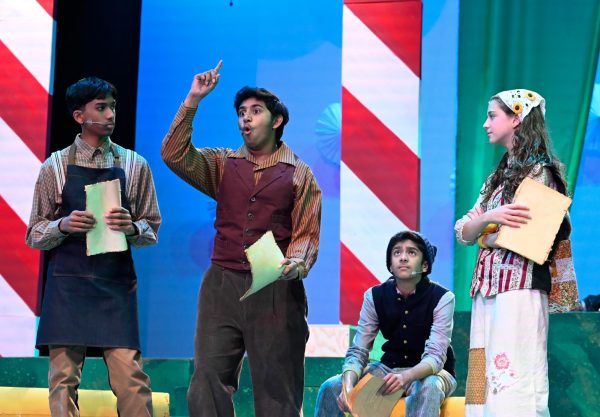
“I really love this cast,” sophomore Duncan Marquardt, who played Demetrius, said. “Making friends with them has been great because there are people that I knew, but also new freshmen in the cast. Because it’s a comedy, this is a really fun show to be a part of. There’s a lot of happiness in the air.”
Alongside the euphoria of this moment came a sense of sadness, particularly for the seniors. For some of them, this was their last Harker production. Fern reflected on their final year participating in the Fall Play.
“After the final show, I felt a wave of sad pride come over me,” Fern said. “I enjoyed every show, from call times to the curtain closing, but I also feel a bittersweetness in the fact that this was my final Fall Play at Harker. I will miss this cast, this production and this process.”




